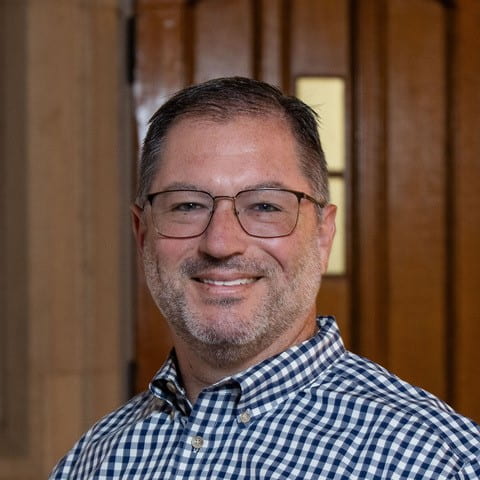Keynote Speaker and Address
Dr. David Rettinger
When Good Students Make Bad Decisions: The Psychology of Why Students Cheat

Online instruction during COVID-19 highlighted some fundamental challenges to teaching and learning in higher education. Just as we began to return to a new normal, generative AI has forced even further reconsideration of fundamental principles of learning in the 21st century. In order to fulfill the promise that higher education makes to our students and to society, we must understand what authentic learning and academic integrity mean in this new world. Academic integrity is more than just the absence of cheating. True academic integrity requires an academic culture that promotes authentic learning and communities of mutual respect. While enforcement of policy is important, psychological research supports a holistic approach to academic integrity that includes a strong emphasis on personal ethical development, excellent pedagogy, and an educational environment focused on the goal of authentic learning.
——————————————————————–
Dr. David Rettinger is a “utility infielder” of academic integrity. He has taught psychology at the college level for over 20 years, including over 15 at the University of Mary Washington, where he holds the title of Professor Emeritus. During that time, he served as Procedural Advisor to UMW’s student-run honor system and has published frequently on the psychology of academic integrity. With a PhD in Cognitive Psychology, he is well-versed in the basic principles of learning science that underlie excellent teaching. He is currently an Applied Professor of Psychology at the University of Tulsa.
His academic research interest is in academic integrity behavior, having published research on the psychology of cheating in Theory into Practice, Research in Higher Education, Ethics and Behavior, and Psychological Perspectives on Academic Cheating. He is co-editor of Cheating Academic Integrity: 40 Years of Research, published by Jossey Bass.
He has presented on topics relating to pedagogy, policy, and practice in academic integrity around the U. S. and internationally. His collaborations include partnerships in Chile, Mexico, Nigeria, Thailand, and Ukraine, and he was a Fulbright Specialist in Nepal. He has appeared in numerous media outlets like the CBS Morning Show, Good Morning America, The New York Times, The Washington Post, Inside Higher Education, and The Chronicle of Higher Education.
Rettinger is President Emeritus of the International Center for Academic Integrity, an organization founded to combat cheating, plagiarism, and academic dishonesty in higher education. In addition, he leads the organization’s efforts in assessment and survey research, continuing the McCabe academic integrity survey.
He earned a Ph.D. (1998) and an M.A. (1994) in psychology from the University of Colorado, Boulder, after receiving a B.A. (1991) with high honors and distinction in psychology from the University of Michigan, Ann Arbor.
